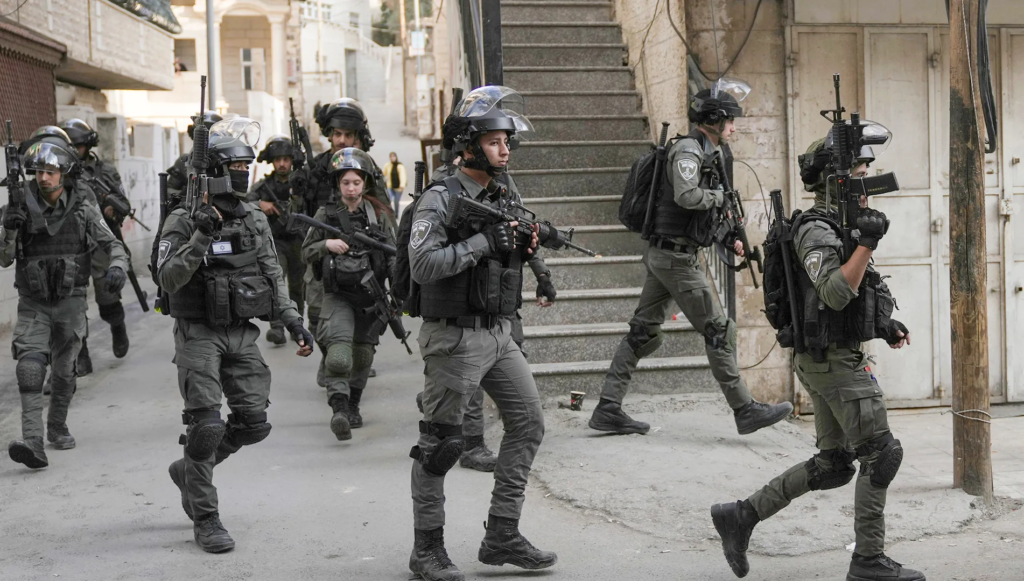UK suspends arms licenses to Israel amidst a heated conflict with Hamas, a move that has sparked controversy and criticism from Israeli Prime Minister Benjamin Netanyahu. Despite the suspension of these licenses, Netanyahu remains resolute, declaring that Israel will achieve victory in the ongoing war, regardless of British military support.
The decision by the UK to suspend arms licenses reflects growing concerns over the use of military equipment in the Gaza conflict, but it has also highlighted the tensions between Israel and its allies.
When the UK suspends arms licenses, it does so with the intention of preventing potential breaches of international humanitarian law. However, this decision has been met with strong opposition from Israel. Netanyahu condemned the UK’s action, stating that Israel’s determination to defeat Hamas remains unwavering.

UK suspends arms licenses is seen by Israel as a setback, but one that will not alter its course in the conflict. This decision has added another layer of complexity to the already fraught international relations surrounding the conflict.
As the UK suspends arms licenses, the implications for UK-Israel relations are significant. Netanyahu criticized the suspension as a move that fails to support Israel in its fight against Hamas. He expressed disappointment that the UK, a long-time ally, has chosen to suspend arms licenses at such a critical time.
This decision underscores the delicate balance that the UK must maintain between supporting Israel’s right to self-defense and adhering to international legal obligations. The suspension has therefore become a focal point in the ongoing debate over the appropriate international response to the conflict.
The UK’s decision to suspend arms licenses comes amid growing international scrutiny of Israel’s military actions in Gaza. By suspending these licenses, the UK aims to prevent its military exports from being used in ways that could violate international law. However, this move has led to increased tension between the UK and Israel.
Netanyahu remains steadfast, insisting that Israel will continue its military operations, even as the UK suspends arms licenses. This development has drawn attention to the complexities of global diplomacy during times of conflict, where strategic decisions by one nation can have far-reaching consequences.
Netanyahu, in his response to UK suspends arms licenses, drew a historical comparison, likening Israel’s battle against Hamas to Britain’s fight against the Nazis during World War II. He argued that just as Britain’s stand against the Nazis was crucial in defending Western civilization, Israel’s fight against Hamas will similarly be judged by history.
Despite the UK suspends arms licenses, Netanyahu is confident that Israel will prevail. His message is clear: Israel’s resolve is not dependent on British military support, and the suspension will not change the outcome of the war.
The decision to suspend arms licenses by the UK also reflects broader concerns about the humanitarian impact of military actions in Gaza. The UK’s suspension aims to ensure that its military exports are not used in ways that could cause civilian casualties.

Netanyahu, however, emphasized that Israel is conducting a just war, taking unprecedented measures to minimize civilian harm. The suspension of arms licenses by the UK is seen by Israel as an unnecessary hindrance, but one that will not deter its military efforts. This tension between the UK’s humanitarian concerns and Israel’s military objectives is at the heart of the controversy.
UK suspends arms licenses, the future of UK-Israel relations is uncertain
The suspension marks a significant shift in the UK’s approach to its military relationship with Israel. For decades, the UK has been a key supplier of military equipment to Israel, and this suspension could have long-term implications for the strategic partnership between the two nations.
The decision raises important questions about the extent to which the UK is willing to support Israel in its conflict with Hamas, particularly as international concerns about civilian casualties continue to grow. This move by the UK could reshape the dynamics of its relationship with Israel.
For Israel, the suspension of arms licenses by the UK represents a serious challenge. Netanyahu has made it clear that Israel will continue its military operations, regardless of the UK’s actions. However, the loss of a key supplier of military equipment could have practical implications for Israel’s ability to sustain its military efforts.
The UK suspends arms licenses highlights the difficult choices faced by nations involved in international conflicts, where the need to balance military support with adherence to international law is paramount.
The UK’s suspension of arms licenses is part of its broader commitment to upholding international humanitarian law. While the decision has been praised by some as a necessary step to prevent potential violations, it has also been criticized by others who believe it could weaken Israel’s ability to defend itself.
Netanyahu’s strong response to the suspension underscores the significance of this decision in the broader context of the conflict. The suspension of arms licenses by the UK is not just a political statement; it is a move that could have real consequences for the ongoing war in Gaza.
In his response to the UK’s decision, Netanyahu reiterated that Israel is pursuing a just war, using just means, and taking all possible steps to minimize harm to civilians. He argued that Israel is fully complying with international law, and that the UK’s decision to suspend arms licenses is therefore unjustified.
This position reflects Israel’s broader narrative of self-defense against an aggressive enemy. As the UK suspends arms licenses, the international community watches closely, aware that this decision could influence the course of the conflict and the future of UK-Israel relations.

